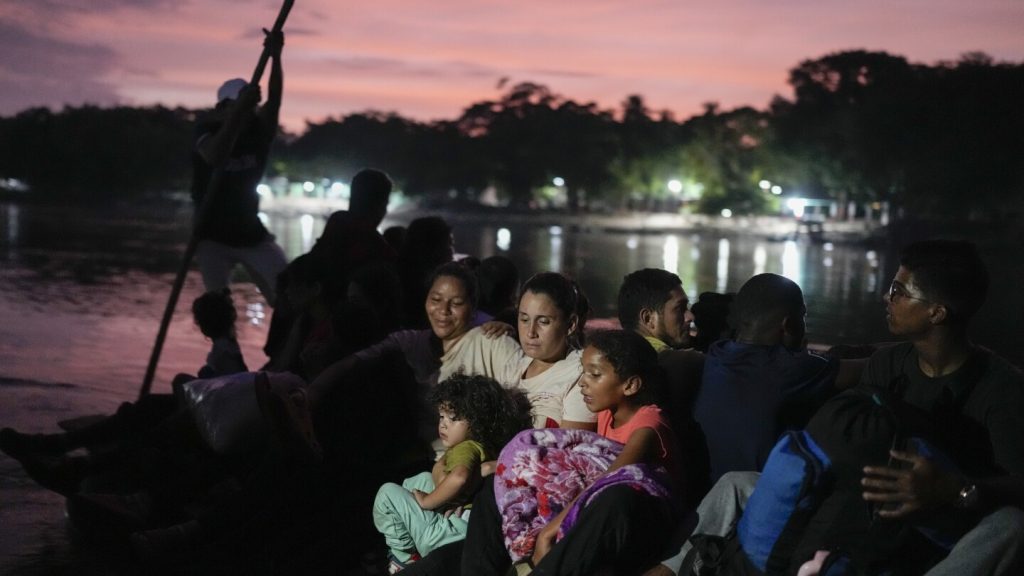Migrants entering Mexico from Guatemala are often held in a large structure known as the “chicken coop” until they pay a ransom to the cartel that controls it. Despite a decrease in migrant encounters at the U.S.-Mexico border, the flow of migrants into Mexico continues, with organized crime exerting stricter control over their movement than federal agents. In Ciudad Hidalgo, where many migrants cross the border, over 150,000 were intercepted by immigration agents from January to August. Migrants who have passed through an initial abduction and paid the ransom explained how the process works, with a Mexican federal official corroborating their accounts.
Mexican immigration agents encountered 925,000 undocumented migrants through August of this year, significantly higher than previous years. However, the number of deportations remains low, with only 16,500 migrants deported. The control of organized crime over the border between Mexico and Guatemala is evident in the daily operations along the Suchiate river. Rev. Heyman Vázquez, a priest in Ciudad Hidalgo, emphasized that it is the cartel that determines who can pass through the border, with authorities often turning a blind eye to their activities.
Migrants are often forced to pay a ransom to organized crime to continue their journey north. Families are held until the payment is made, and their photos are taken and stamped as proof. Gunmen stop vans and taxis heading to Tapachula, checking for the stamps, and those without them are sent back. Some migrants are sexually assaulted if they cannot pay the ransom. The presence of cartels at Mexico’s southern border has increased due to the lucrative nature of trafficking migrants, drugs, and weapons.
President Claudia Sheinbaum’s government in Mexico has been criticized for its handling of the violence and organized crime at the border. Migrants are often cycled from the north back to the south, exposing them to more risks of kidnapping and extortion. The Mexican government has made efforts to facilitate the asylum process for migrants by expanding access to CBP One and opening mobility corridors to help them reach the U.S. border. However, the challenges and dangers faced by migrants remain significant due to the control exerted by organized crime.
Migrants with confirmed CBP One appointments in Tapachula face challenges in traveling to the northern border, with many reporting extortion by Mexican authorities and re-abduction by cartels near the border. Some migrants worry about missing their appointments due to these obstacles. In the midst of the 2024 U.S. election, migrants like Jeyson Uqueli, who are trying to reach the border before potential changes in policies, are anxious about the uncertainty of their journey. The presence of organized crime and the violence at the border continue to pose significant risks to migrants seeking a better life in the United States.


